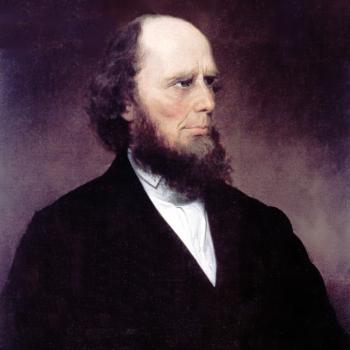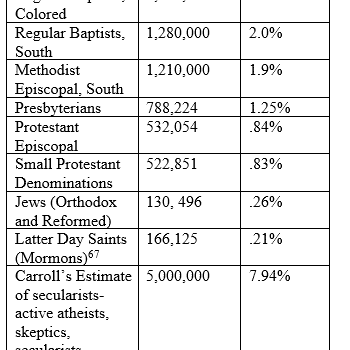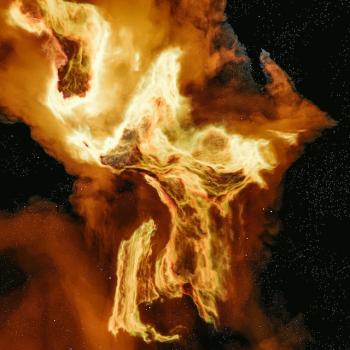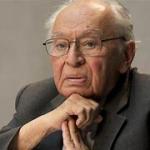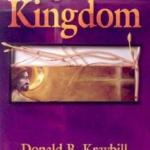Many Christians today are disillusioned by their efforts to know God. Many may wonder if it is even possible. It is something we talk about in Church or small group often, but we rarely discuss how we know God and what that means. We go through the motions…church, home group, read the Bible sometimes, pray sometimes. Yet this is not what knowing God means, nor are these small gestures of devotion enough for our souls to truly connect with the Almighty. As an academic, I often feel I know a great deal about God, but wonder if I truly know Him: His heart, His desires for my life, His blessings for myself and others.
Is knowing God mystical?
I am not usually one to embrace the mystical traditions of Christianity, often finding them shallow, subjective, and unreproducible. Yet when I read of the great Christian mystics like Teresa of Avila, her experience seems so desirable. In her 1565 autobiography she writes:
I saw an angel appear in bodily form close by my left side … He was not large, but small, and extremely beautiful. His face was aflame with fire…In his hands, I saw a golden spear, with an iron tip at the end that appeared to be on fire. He plunged it into my heart several times, all the way to my entrails. When he drew it out, he seemed to draw them out, as well, leaving me all on fire with love for God.
Life, Ch. 29
This is the kind of experience many of us may wish for, to truly encounter the supernatural in a life changing way with the result of being in love with God. This is not in the way we might use that term in some offhanded way, not really meaning it, but to be consumed with God’s love as His Spirit pours into us. This kind of knowing God in a deeply intimate and familiar way leaves us unable to do anything but love Him and to show His love to others.
Of course most of us will not have the kind of extreme event such as the one described by Teresa. But we should be encouraged that we can know God better as we spend time with Him and commit ourselves to His presence. However, we may have to direct our attention is ways which seem counterintuitive as we seek God in this process.
Knowing God and Unknowing Him
One of Teresa’s disciples, Saint John of the Cross, continued her devotion to the mystic experience. In his 1579 work The Ascent of Mount Carmel St. John writes,”In order to come to union with the wisdom of God the soul has to proceed rather by unknowing that by knowing.” By this he means that our mind can get in the way of knowing God. We have to quiet our own thoughts and distractions as we seek Him in order to connect our spirits to His.
This is not easy. The modern world is busy and filled with distractions like social media, the news, and entertainment of every kind and description. Even those things in our lives which are not frivolous are distractions: paying the bills, going to work, caring for our children and our elderly parents. None of these things are bad or evil. They are part of life and life can be very full and very busy.
The Dark Night
The Ascent of Mount Carmel opens with a beautiful poem and the rest of the book is essentially a commentary on that poem.
It begins:
S1: On a dark night,
Kindled in love with yearnings — oh, happy chance! —
I went forth without being observed,
My house being now at rest.
S4: This light [of my heart] guided me
More surely than the light of noonday,
To the place where he
(well I knew who!) was awaiting me —
A place where none appeared.
St. John goes on to explain this dark night. Many Christians misunderstand this phrase and use it to mean something like “going through difficult times.” While we certainly endure very dark times in our lives, this is not the way St. John uses the phrase. For him the dark night is a sense of separation from all the things of this world and concentration solely on God as we seek Him. Perhaps it is something like this image below.

He states:
We here describe as night the privation of every kind of pleasure which belongs to the desire; for, even as night is naught but the privation of light, and, consequently, of all objects that can be seen by means of light, whereby the visual faculty remains unoccupied and in darkness, even so likewise the mortification of desire may be called night to the soul.
Ascent, Book 1, Ch III.
In order to reach a state where we experience God’s fullness, we must empty our minds of all diversions and recreations. We have to give up pleasures and entertainments, and attempt to be in the darkness which results from giving up all distractions. This is the frame of mind St. John advocates for the serious believer.
The Middle Age World vs. the Modern World
Of course it is easy to rebut this requirement. We might say: “St. John lived in the Middle Ages, there was no entertainment, there was no Facebook!” Or perhaps, “St. John was a monk, no one can live that way now.” And these are true statements.
Where, however, St. John of the Cross remains applicable to our post-modern world is that it is possible to achieve a mental state which is better prepared to know God. This is where the discipline of unknowing comes in. This requires being purposeful about finding a time and a place where we can empty our mind, turn our soul to God, and entreat Him for an infusion of His wisdom rather than relying on our own understanding.
I am not promoting monasticism or an ascetic lifestyle, although there are those who continue that tradition even today. Instead, I am pointing out that we will never truly know God any more that we did yesterday, if we do not make the effort. Yet even when we are purposeful about setting aside time for seeking God, we will never attain union with Him by our own efforts.
Thomas Merton, that great Catholic commentator on St. John of the Cross tells us:
Mystical union is a gift of God. It cannot be acquired by any ascetic technique. It cannot be merited in the strict sense by any man, however holy he may be. No system of meditations, of interior discipline, of self-emptying, of recollection and absorption can bring man to union with God, without a free gift on the part of God Himself.
The Ascent to Truth, 76.
The Good News
There is good news friend. God desires us to seek Him and He presents Himself in understandable and relatable ways. He made us for relationship and knows all our distractions, our sins, our inability to come to Him. Just as He made a way to overcome sin through the Atonement, so He also makes a way for us to come to true knowledge of Him.
Merton again calls this knowledge “the experiential knowledge of God that is received by the soul in contemplation.” This is true wisdom, not anything learned in books or in universities, but true knowledge of God–direct knowledge. God desires us to know Him, and God rewards those who sacrifice the things of this world in order to know Him better.
In the Scriptures the Apostle James tell us:
If any of you lacks wisdom, let him ask God, who gives generously to all without reproach, and it will be given him. But let him ask in faith, with no doubting, for the one who doubts is like a wave of the sea that is driven and tossed by the wind. For that person must not suppose that he will receive anything from the Lord; he is a double-minded man, unstable in all his ways.
Jas 1.5-8 ESV
Here we see that God wants to grant to His children the wisdom that comes from Him. Knowing God in this way should be our desire, for He desires that we will seek Him. When we do, let us believe and not doubt, because the good God will reward us when we do. Not only can we know God but He calls to us and meets us when we make the effort. Be encouraged, believer. God is wanting you as much as you want Him.




